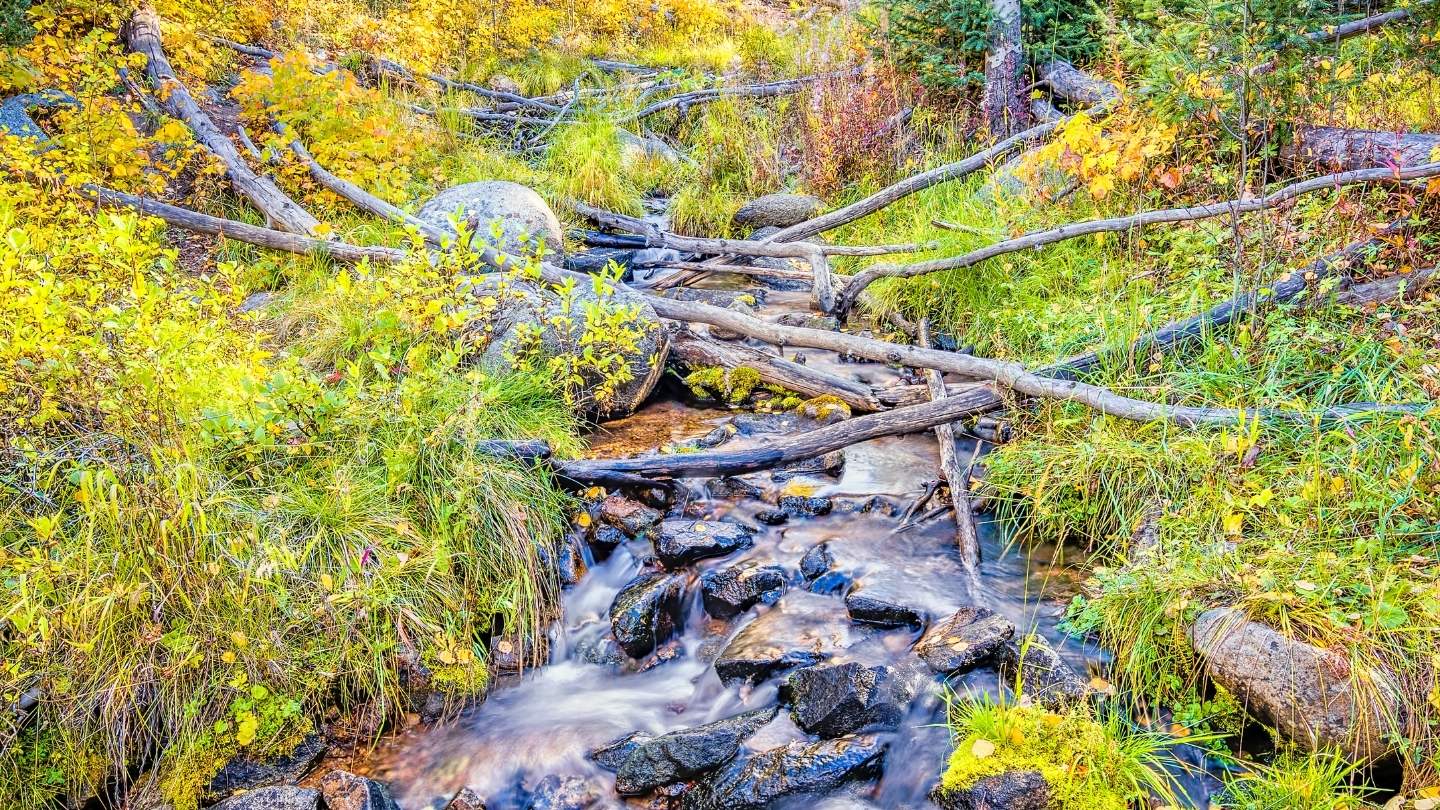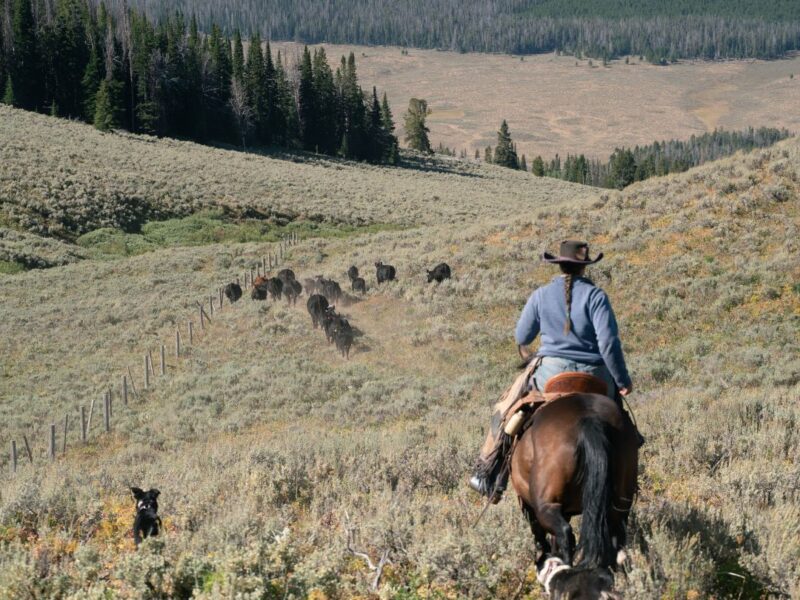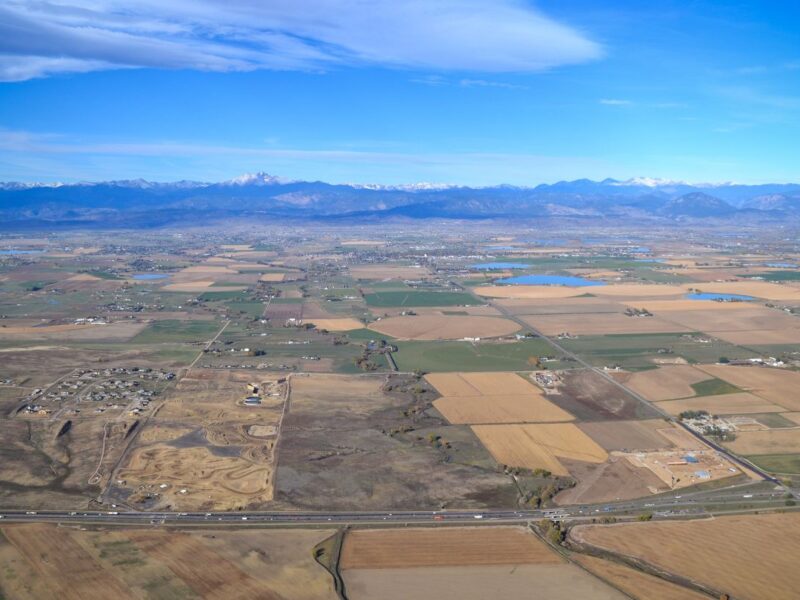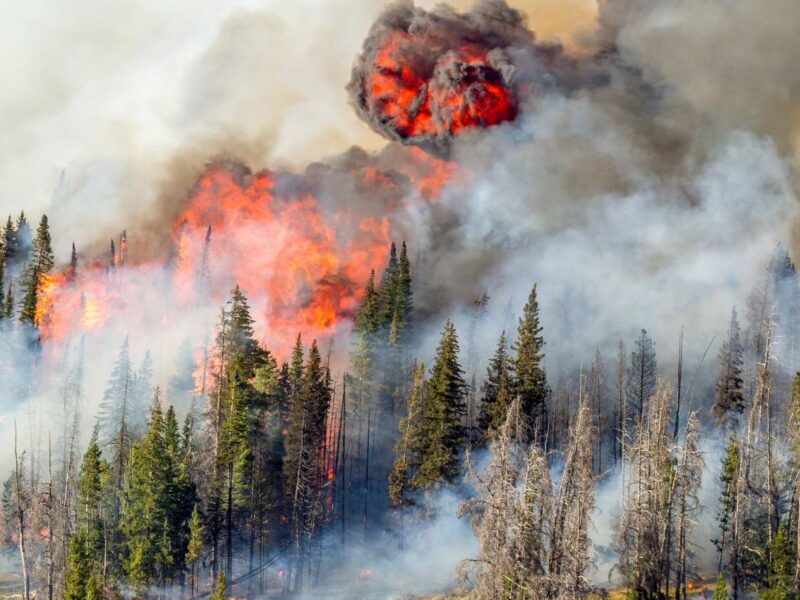Stream Access: A Western Water Issue
In March of 2022, the New Mexico Supreme Court issued a ruling upholding the public’s right to access waterways that flow through private land. As noted by the court in its ruling, landowners only own the land adjacent to the streams but not the water within them. The U.S. Supreme Court declined to weigh in on the matter, meaning the ruling is now final.
While the court’s ruling grants the public the right to recreate and fish in New Mexico’s waters, anglers, and other recreationalists cannot trespass on private land to access these waterways. Access to private land can only occur if the public uses an existing public access point to wade or walk along the bank as it crosses private property.
We emphasize that the scope of the public’s easement includes only such use as is reasonably necessary to the utilization of the water itself and any use of the beds and banks must be of minimal impact.
– New Mexico Supreme Court
Perhaps the most vexing issue to arise out of this ruling is balancing the public’s right to water and the rights of private property interests – both of which are constitutionally protected. In the Supreme Court’s words, “We emphasize that the scope of the public’s easement includes only such use as is reasonably necessary to the utilization of the water itself and any use of the beds and banks must be of minimal impact. ‘The real property interests of private landowners are important as are the public’s property interest in water. Both are constitutionally protected. These competing interests, when in conflict, must be reconciled to the extent possible.’”
Since the court’s ruling, many questions and concerns have evolved from the ongoing access-related conversations. These include questions about fencing and livestock barriers, what constitutes “reasonable access,” and what agency has the authority to enforce the court’s ruling.
As interpreted by the New Mexico Office of the Attorney General, the ruling makes stream beds and banks a public easement and therefore the public has the right to access them. However, as a fence-out state, private property owners rely heavily on fences and livestock barriers to contain their herds and protect themselves from damage. Both landowners and recreationalists are still unclear as to what “reasonable access” really means, and what enforcement will look like.

Landowners take note: Last month, New Mexico Attorney General Raúl Torrez announced that the AG’s office is committed to investigating allegations of blocked water access on private property.
Landowners take note: Last month, New Mexico Attorney General Raúl Torrez announced that the AG’s office is committed to investigating allegations of blocked water access on private property. In his statement, the Attorney General cited complaints of fences through and over waterways that allegedly pose a risk to the public.
Despite the recent statements from the Attorney General’s office, there appears to be no clear path forward for enforcing the court’s ruling. The Director of the New Mexico Department of Game and Fish, Michael Sloane, recently explained at a game commission hearing that the agency cannot promulgate rules to enforce fencing and “reasonable access” as no statutory language permits their involvement. Unless the New Mexico legislature passes a law or makes an amendment to the statute, NMDGF will likely remain on the sidelines for the time being.
In the meantime, landowners share a variety of concerns over this ruling. How will law enforcement be handled? Will streams on private land be law enforcement-free zones, or will law enforcement officials seek access through private land? How will “natural streams” be defined? Does that include arroyos? Gullies of a certain size? Any shallow depression across which water may run in a rainstorm? Who is liable for damages to the stream bed and banks?
Western Landowners Alliance is pursuing answers to these questions, working to ensure property rights are upheld and advocating for the fish and wildlife populations and habitats adversely impacted by this ruling.
The issue of stream access is nothing new to the West, and plenty has happened in this arena over the past year. In May, the Utah Supreme Court determined that the public does not have the constitutional right to wade on the beds of non-navigable waters and that any changes to existing law must be done through legislation. The decision keeps Utah’s Public Waters Access Act of 2010 intact despite a thirteen-year effort to overturn it.
In June, the Colorado Supreme Court ended an ongoing legal battle over public access to river and stream beds. The court ruled that no individual has the legal standing to declare the state the owner of the riverbed, and because Colorado has never asserted ownership, the case of Roger Hill versus Mark Warsewa and Linda Joseph could not proceed. The result of this ruling shields Colorado’s landowners, at least temporarily, from further challenges to the state’s unique private property laws.
Landowners, we want to hear from you! Please send us your questions, concerns, experiences and recommendations on stream access.




